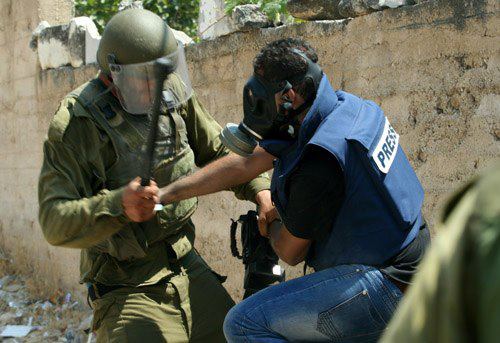Tag: Nablus
-
Israeli military beats and arrests journalists, suppresses Kufr Qaddoum demonstration
By Marshall Pinkerton and Alma Reventos 18 August | International Solidarity Movement, West Bank On Friday, August 17, 5 were injured and 8 arrested during the weekly protest in Kufr Qaddoum. Israeli soldiers fired tear-gas canisters, rubber-coated steel bullets, and beat protesters with wooden sticks. The village experienced an unprecedented amount of violence during the peaceful…
-
Asira al-Qibliya: terrorizing settler attacks
By Saffron 6 August 2012 | International Solidarity Movement, West Bank Armed Israeli settlers reinforced by the Israeli military regularly assault the villagers if Asira al-Qibliya. The settlers come from nearby colonies built in violation of International law, raid Asira al-Qibliya, throw stones, and shoot live ammunition. The illegal settlers often enter Asira al-Qibliya, scream…
-
One year after killings: Iraq Burin continues its struggle
By Jonas Webber 31 July 2012 | International Solidarity Movement, West Bank Three days before the start of Ramadan, the small mountainside town of Iraq Burin was attacked by Israeli settlers from the illegal colony of Bracha. The attackers descended from the settlement at 12:30 a.m. and were soon followed by the Israeli military, shooting…

